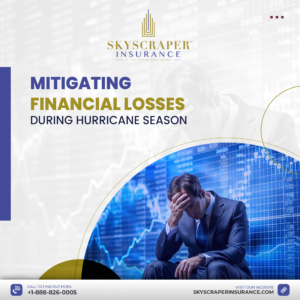Understanding the landscape of small business insurance costs is essential for companies seeking comprehensive coverage in 2024. As businesses continue to navigate the evolving risks and uncertainties of the modern economy, having adequate insurance protection is more critical than ever. Here’s an in-depth look at the factors influencing small business insurance costs and strategies to optimize coverage:
💰 Cost Factors: Small business insurance costs primarily depend on the policies you buy and the specific risks your business faces. While general liability insurance remains the most common and affordable policy, other factors such as industry risks, business size, claims history, and geographic location all play significant roles in determining premiums. Businesses with higher exposure to risks, such as those with frequent public interaction or a history of claims, may incur higher insurance costs to mitigate potential liabilities.
📉 Impact of Risks: Insurance premiums reflect the likelihood of encountering risks associated with your business operations. For instance, businesses operating in industries prone to accidents or lawsuits, such as construction or healthcare, may face higher insurance premiums due to elevated risk levels. Similarly, businesses with valuable assets or extensive public interaction may require more comprehensive coverage to protect against potential losses.
📊 Average Premium Costs: While insurance premiums vary based on the types of policies purchased and individual business characteristics, understanding average premium costs can provide valuable insights for budgeting purposes. On average, monthly premiums for common small business insurance policies include:
General liability insurance: $42
Workers’ compensation insurance: $45
Business owner’s policy (BOP): $57
Cyber insurance: $145
Commercial auto insurance: $147
Errors and omissions insurance (E&O): $61
Professional liability insurance: $61
Directors and officers insurance (D&O): $138
Commercial umbrella insurance: $75
Commercial property insurance: $67
Employment practices liability insurance (EPLI): $222
🔄 Factors Affecting Costs: Policy limits, deductible amounts, business size, industry risks, and location all impact insurance costs. Choosing higher coverage limits or deductibles may affect premiums, as well as the insurance company selected. Additionally, businesses with comprehensive risk management strategies and a history of minimal claims may qualify for lower insurance rates.
💡 Cost-Saving Strategies: While insurance is a necessary expense for businesses, there are several strategies to optimize coverage and reduce costs. Shopping around for competitive quotes, bundling policies to access discounts, making annual premium payments to save on fees, maintaining continuous coverage to avoid gaps in protection, and implementing robust risk management practices are all effective ways to manage insurance costs while safeguarding your business.
Navigating small business insurance costs requires careful consideration of your business’s unique needs and risk profile. By partnering with Skyscraper Insurance, businesses can access tailored insurance solutions and expert guidance to ensure adequate coverage and financial protection in an ever-changing business landscape.
#SmallBusinessInsurance #RiskManagement #SkyscraperInsurance #WeShareYourVisionForABetterTomorrow




